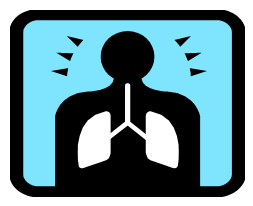Please, no more innovation! Just let us come to terms with the last lot of changes! We prefer standardisation to innovation! This is the sector where innovators are really gladiators
Protect your intellectual property in healthcare services innovation? Good luck with that idea. This one is for fearless innovation buccaneers looking for the ultimate challenge. You think you can cope with thanklessness? One of these talks was subtitled “When brilliance gets crushed by reality”. If you’re convinced you can get funding for the unfundable, implement the unimplementable and scale the unscalable, it’s time to put your entrepreneurial bravado to the ultimate test.
Innovation that sounds nothing like innovation
Affection, warmth, sympathy, tolerance, kindness, self-effacement, humility, devotion and responsiveness. These sound like a lot to ask of a good friend. But to expect them from a provider of services? It sounds like way too much. You would need to either be paid a lot to offer this, or really want that job very badly.
If you felt you could sustainably monetise a way of offering these things, you might be prepared to invest in whatever resources, human and infrastructural, that it took to provide them. But could we really call this innovation? They seem like pretty old-fashioned qualities, and also, describing them in this abstract way doesn’t seem to be where discussions about innovation usually begin. Welcome to the world of healthcare services innovation.
What might be new about a healthcare innovation opportunity would be to implement a strategy where these ‘experiential improvement’ (there’s an amazing story in the video about how Benjamin Leon did this and eventually sold his business for $400 million) aspects were taken to higher levels than they’d been taken before, or into services where they hadn’t been ‘maxed out’ before, or to build systems which made them more scalable than before.
Healthcare services innovation is often more about making strategic changes in application and integration than it is about ‘newness’
So sometimes service innovation doesn’t necessarily mean doing anything other than what you could have done thousands of years ago, but it quite possibly does mean that you’re maybe going to need to do it better (which still might not be all that innovative) and it is definitely going to need you to apply that ‘raised quality of service’ in places and to things, services and kinds of people who have never experienced it before.
So, surprisingly perhaps, a significant component of service innovation may not be innovative (the service itself) and the innovative part may be mostly (or even entirely) the way that a change (in this case an improvement in the level or quality of service) is applied.
For innovators outside of healthcare services this approach to innovation will seem weird
Outside of healthcare and especially outside of services, being as nice to your customer as you possibly can be is not usually such a big deal (innovators are often scornful of non-innovators’ lack of perception of customer disenchantment, a sense which has been known to make many innovators feel smug: the challenges facing healthcare services innovators soon put such vanities into perspective).
In healthcare services, the customer demands upon you are potentially infinite! How, for instance, can you implement a change which will supposedly ‘innovatively increase your service level’ when that last thing that you did for them saved their life?
Innovation here often turns out to be this: you have to create systems which empower those ‘working at the point of delivery’ so that they deliver ‘loyalty reinforcing service’ even when they are confronted with serious problems, like customers who are irascible, argumentative, unsatisfiable, or in any number of mental or physical states which might pose serious challenges to any form of service provider, and to do this when the person delivering the service may not be in perfect physical or mental shape themselves. Even unsuccessful contributors to healthcare services innovation often deserve our serious respect for taking on what many see as the ultimate ‘poison chalice’ in the innovation space.
The event in the video was the 2011 Stanford GSB Healthcare Summit
This interactive panel discussion on service innovation in healthcare was led by Arnold Milstein, Professor of Medicine and leader of Stanford University’s new Clinical Excellence Research Center
Panelists included Jerry Coil of AltaMed Health Services, Thomas Lee of One Medical Group, and Paul Wallace of the Lewin Center for Comparative Effectiveness Research.


